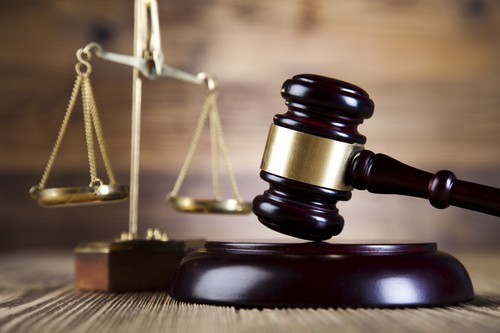Worker Deaths Spark COVID-19 Lawsuits Against Major Corporations
October 5, 2020
Walmart, Tyson & More Are Accused of Ignoring Safety Measures & Workers’ Symptoms
Workers at essential businesses have kept the nation running while facing a greater risk of COVID-19 exposure. Tragically, the risk has proved fatal for some, resulting in death for some employees of big box stores, grocery stores, meatpacking factories, and other companies.
Now, many families of these workers are seeking justice. They have filed wrongful death COVID-19 lawsuits in courts across the nation, looking to hold companies like Walmart, Safeway, Quality Sausage, Tyson Foods, JBS, and others liable.
Allegations in Worker Death Coronavirus Lawsuits
As of June 2020, more than 14 coronavirus lawsuits alleging wrongful death have been filed in U.S. courts, according to Bloomberg. The American Association for Justice (AAJ) reports 36 of these cases were filed by July 13, 2020.
Generally, these lawsuits claim that companies failed to take action to limit workers’ exposure to the coronavirus, causing them to contract the illness at work and die from it shortly thereafter.
Here’s a closer look at some of the specific allegations in these wrongful death COVID-19 lawsuits:
- The companies required symptomatic employees to come to work: The lawsuit against Quality Sausage alleges that the company threatened to lay off a symptomatic worker if he didn’t show up for his shift. In the case against Walmart, the company is accused of ignoring a worker’s symptoms, despite their consistency with the symptoms of COVID-19.
Similarly, Tyson is accused of letting exposed and sick workers continue working, all while publicly proclaiming the plant to be safe. Additionally, the lawsuit against Tyson claims the company actually let workers from another Iowa plant, which had closed down due to a COVID-19 outbreak, start working at an open plant.
- Employers failed to disclose when an employee may have contracted COVID-19: The lawsuit against Walmart alleges that management did not tell staff that they could have been exposed to the coronavirus due to one employee’s symptomatic status. This, the plaintiffs claim, resulted in two workers dying of COVID-19, within four days of each other, after exposure at work.
In the case against Tyson, supervisors allegedly lied to staff outright, telling them their symptomatic coworkers were sick with the flu. They also discouraged workers from discussing the coronavirus at work.
- Companies failed to follow the recommended safety precautions: Meat processing company JBS is accused of not requiring employees to quarantine or even report illness. JBS also failed to provide workers with masks until April 2, the lawsuit claims. The cases against Walmart and Tyson have similar allegations, accusing these companies of failing to enforce social distancing or provide workers with masks or gloves for weeks.
In response to these allegations, the companies have broadly claimed that they followed safety measures and that it’s not possible to prove that workers contracted the illness at work.
Companies Push for Liability Protections from COVID-19 Lawsuits
As coronavirus lawsuits mount and these cases start to play out in court, another key element related to these claims is unfolding with lawmakers—and that’s the question of liability shields for companies facing these lawsuits.
In fact, some lawmakers in Congress have already proposed a degree of immunity from these claims for businesses. States like Iowa, Ohio, Utah, North Carolina, and Wyoming have taken it a step further, enacting some type of liability shield for companies. While these vary widely, some include measures that:
- Are temporary, only lasting through 2020
- Exclude acts of reckless or intentional infliction of harm
- Are industry-specific, only applying to certain businesses, like health care providers
- Block claims from court, so they can only be brought through the state’s workers’ compensation system
COVID-19 Immunity Would Threaten Workers’ Safety, Advocates Say
Opponents to liability shields for businesses see them as encouraging reckless behavior among companies while making it harder to hold them liable for it. Unions, worker advocates, and others are among those who oppose liability protections. They say immunity from wrongful death COVID-19 lawsuits could result in companies overlooking safety measures and dangerously exposing workers to the coronavirus if it ends up meaning more profits and little to no risk of lawsuits.
As David C. Vladeck, a professor at the Georgetown University Law Center, told the Senate Judiciary Committee in May 2020, “immunity signals to workers and consumers that they go back to work or they go to the grocery store at their peril.”
It could take months or more before there are any resolutions in the pending COVID-19 lawsuits—and before there are more answers about the possibility of federal liability protections from these claims. How these battles shake out may end up having major implications for justice, the national sense of public trust, the economy, and much more.
